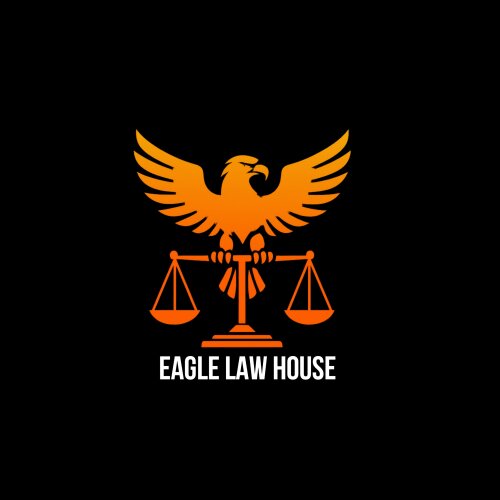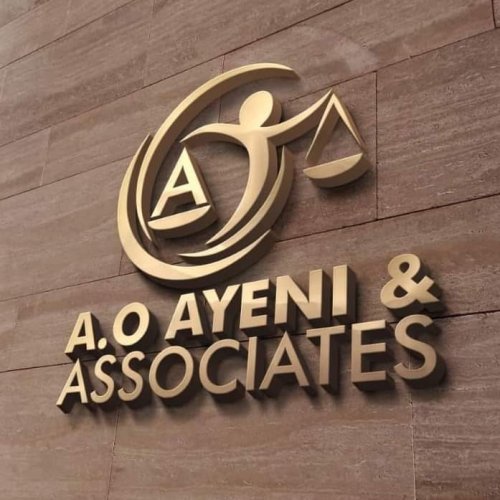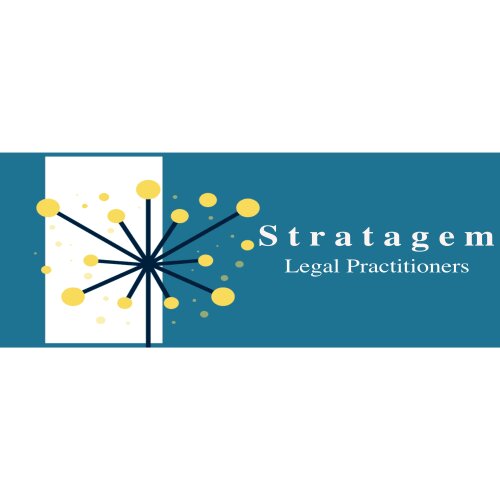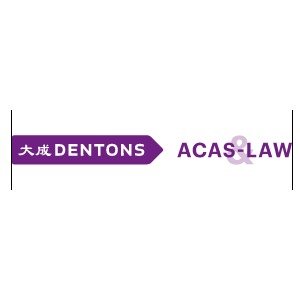Best Immigration Lawyers in Abuja
Share your needs with us, get contacted by law firms.
Free. Takes 2 min.
List of the best lawyers in Abuja, Nigeria
Nigeria Immigration Legal Questions answered by Lawyers
Browse our 12 legal questions about Immigration in Nigeria and read the lawyer answers, or ask your own questions for free.
- Urgent assistance
- Hello, please I am in need of advice/assistance about my Nigerian passport. I was deported from the uk for overstaying in 2016 and I was deported back to Nigeria via chartered flight and my passport was given to Nigerian immigration, I was told it would be sent to me but... Read more →
-
Lawyer answer by CO-dunni Law Solicitors
You should write to immigrations to help with your ban. You need further assistance contact our Law Firm directly
Read full answer - Request for Legal Assistance with Student Visa Denial
- Dear Sir or madam Good day, I hope this message finds you well. I am writing to request your legal assistance regarding the recent denial of my student visa application for Germany. I was enrolled in the Bachelor of Information Engineering program for the Summer Semester 2024 at Hamburg University... Read more →
-
Lawyer answer by mohammad mehdi ghanbari
Dear SirThank you for reaching out and for providing a detailed account of your situation. I am sorry to hear about the denial of your student visa application and understand the frustration this must cause, especially after such a long...
Read full answer - Information about Permanent residence visa
- Can I get a step by step guidelines on how to apply for Australia permanent residence visa through provincial nominee or skilled worker?
-
Lawyer answer by mohammad mehdi ghanbari
Hello, good morningObtaining permanent residency in Australia as a skilled worker involves a points-based system and can be done either independently or with a nomination from a state or territory government. The process requires careful preparation and meeting specific eligibility...
Read full answer
Nigeria Immigration Legal Articles
Browse our 1 legal article about Immigration in Nigeria written by expert lawyers.
- Procedure and Requirements for Work Permit and Visas in Nigeria
- Foreign nationals seeking to enter, work, or reside in Nigeria must meet the country's Immigration Rules. The Nigeria Immigration Regulations on work permits are outlined in the Immigration Act 2015 and the Immigration Regulations 2017. The agency responsible for issuing work permits to aliens is the Nigeria Immigration Service.Definition of... Read more →
About Immigration Law in Abuja, Nigeria
In Abuja, Nigeria, immigration law governs the movement of people into and out of the country, as well as their legal status while residing in Nigeria. The Nigeria Immigration Service (NIS) is responsible for enforcing immigration laws and regulations in Abuja.
Why You May Need a Lawyer
There are several situations where it is advisable to seek legal assistance in immigration matters:
- Applying for a visa or requesting a visa extension
- Facing deportation or removal proceedings
- Seeking asylum or refugee status
- Obtaining Nigerian citizenship or permanent residency
- Dealing with complex immigration cases or legal disputes
Local Laws Overview
When it comes to immigration laws in Abuja, Nigeria, there are key aspects that you should be aware of:
- Visa Requirements: Visitors to Abuja must have a valid visa unless they are from visa-exempt countries. Different types of visas are available, such as tourist visas, business visas, and work visas, each with its specific requirements.
- Residency Permits: If you plan to reside in Abuja for an extended period, you may need to obtain a valid residency permit. This permit allows you to legally stay and work in Abuja.
- Deportation: If you violate immigration laws or overstay your visa, you may face deportation or removal proceedings initiated by the Nigerian Immigration authorities.
- Refugee and Asylum Seekers: Abuja has processes in place to provide protection and assistance to individuals fleeing their home countries due to persecution or fear. These processes involve applying for refugee or asylum status.
- Citizenship: For those seeking Nigerian citizenship, there are specific criteria and procedures to follow, including residency requirements, language proficiency tests, and a willingness to renounce previous citizenship.
Frequently Asked Questions
1. Can I apply for a visa upon arrival in Abuja?
No, it is generally advisable to obtain a visa before traveling to Abuja. However, some nationalities may be eligible for visas upon arrival, but it is recommended to confirm this with the Nigerian Embassy or consulate before your trip.
2. How long can I stay in Abuja on a tourist visa?
The duration of stay on a tourist visa varies depending on the type of visa issued. Typical tourist visas may allow stays of up to 90 days, while multiple-entry visas may allow for longer stays. Always check the specific conditions mentioned on your visa.
3. What are the requirements for obtaining Nigerian citizenship?
The requirements for Nigerian citizenship include meeting residency criteria, being of good character, renouncing previous citizenship (if applicable), demonstrating language proficiency, and showing a commitment to contributing to the Nigerian society.
4. How can I sponsor a family member to join me in Abuja?
Sponsoring a family member to join you in Abuja often involves applying for a family reunification visa. The exact requirements and procedures can vary depending on the relationship (e.g., spouse, child, parent) and the type of visa being sought. Consulting with an immigration lawyer can help navigate this process.
5. What should I do if I am facing deportation in Abuja?
If you are facing deportation in Abuja, it is crucial to seek legal assistance immediately. A lawyer specialized in immigration law can assess your situation, advise you on your rights, and guide you through the deportation proceedings to ensure the best possible outcome.
Additional Resources
Here are some resources, governmental bodies, and organizations related to immigration that can provide further assistance:
- Nigeria Immigration Service (NIS): The official website of NIS provides information on immigration laws, visa requirements, and contact details for inquiries.
- Nigerian embassies and consulates: You can contact your nearest Nigerian embassy or consulate for specific information and assistance regarding visas, citizenship, and other immigration matters.
- Nigerian Bar Association (NBA): The NBA can provide references to qualified immigration lawyers in Abuja who can assist with legal advice and representation.
Next Steps
If you require legal assistance in immigration matters in Abuja, Nigeria, it is advisable to consult with an immigration lawyer. They will assess your specific situation, provide expert advice, and guide you through the necessary legal processes, ensuring your rights and interests are protected.
Lawzana helps you find the best lawyers and law firms in Abuja through a curated and pre-screened list of qualified legal professionals. Our platform offers rankings and detailed profiles of attorneys and law firms, allowing you to compare based on practice areas, including Immigration, experience, and client feedback.
Each profile includes a description of the firm's areas of practice, client reviews, team members and partners, year of establishment, spoken languages, office locations, contact information, social media presence, and any published articles or resources. Most firms on our platform speak English and are experienced in both local and international legal matters.
Get a quote from top-rated law firms in Abuja, Nigeria — quickly, securely, and without unnecessary hassle.
Disclaimer:
The information provided on this page is for general informational purposes only and does not constitute legal advice. While we strive to ensure the accuracy and relevance of the content, legal information may change over time, and interpretations of the law can vary. You should always consult with a qualified legal professional for advice specific to your situation.
We disclaim all liability for actions taken or not taken based on the content of this page. If you believe any information is incorrect or outdated, please contact us, and we will review and update it where appropriate.
Browse immigration law firms by service in Abuja, Nigeria
Abuja, Nigeria Attorneys in related practice areas.

















